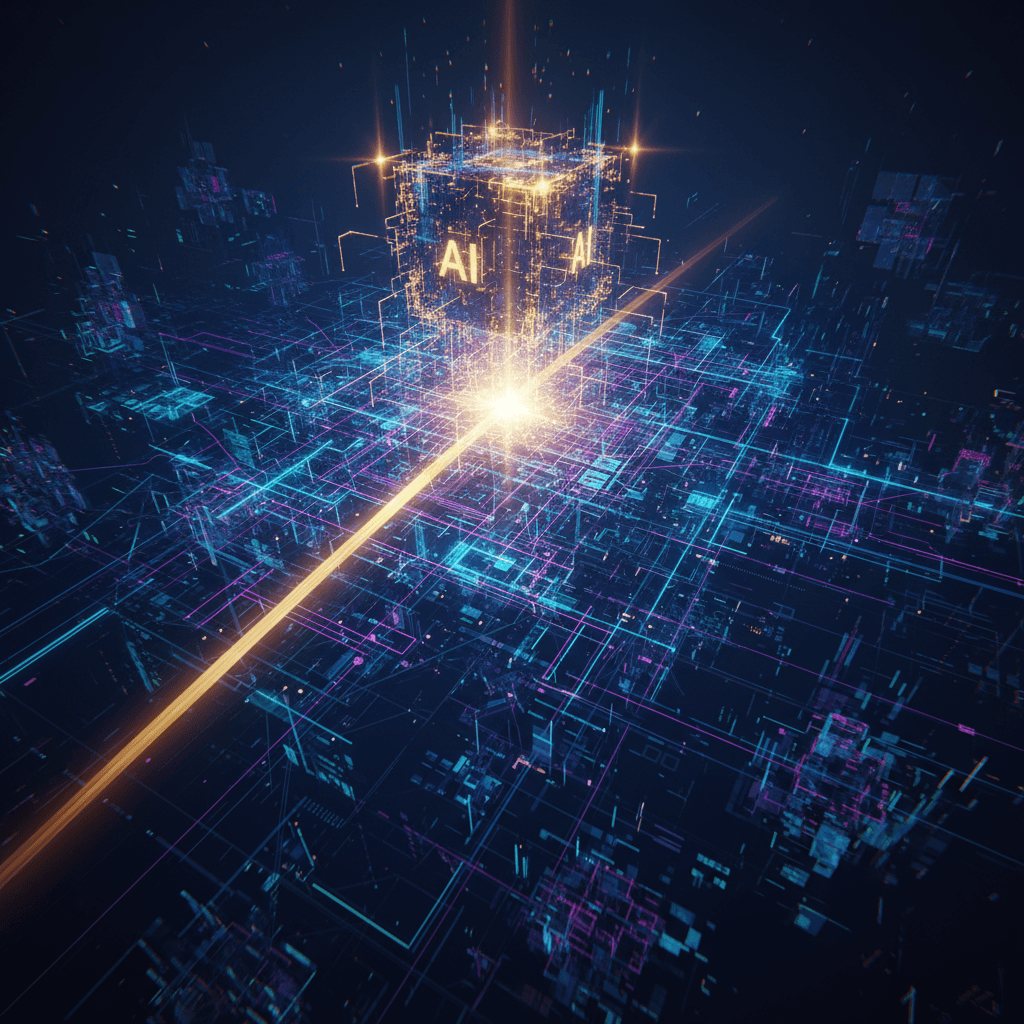Gemini AI Achieves Gold, Solves Complex ICPC Problem That Stumped All Humans
A new AI milestone: Gemini 2.5 Deep Think wins gold in elite coding by solving a problem that stumped all humans.
September 17, 2025

A new version of Google's Gemini artificial intelligence system has demonstrated a significant leap in advanced reasoning and problem-solving, achieving a gold-medal level performance at the International Collegiate Programming Contest (ICPC) World Finals.[1][2][3] The AI, known as Gemini 2.5 Deep Think, not only matched the performance of the top human collegiate programmers but also successfully solved a complex problem that stumped all human competitors.[4][5][3] This achievement in the world's most prestigious and difficult university-level coding competition signals a major milestone in the quest for more capable AI, moving beyond simple code generation to tackling multifaceted challenges that require deep, abstract thinking.[1][6][2][7] The event, which took place in Baku, Azerbaijan, brought together top student teams from thousands of universities worldwide, all vying to solve a dozen complex algorithmic problems under immense time pressure.[1][2][3] Gemini 2.5 Deep Think's success in this high-stakes environment underscores the rapid evolution of AI systems and their growing potential to augment, and in some cases surpass, human ingenuity in highly specialized domains.
The performance of Gemini 2.5 Deep Think at the ICPC was remarkable for its speed and proficiency.[3] Competing under official contest rules in a remote online environment, the AI solved 10 of the 12 given problems.[1][6] According to Google, the system solved its first eight problems within just 45 minutes and two more within three hours, logging a total solution time that would have placed it second overall if it had been ranked among the 139 human teams.[5][3] The ICPC is an unforgiving contest where only perfect, error-free solutions receive points, and rankings are determined by the number of problems solved and the time taken.[2][5] The competition draws from the brightest minds in computer science, with participants from nearly 3,000 universities across over 100 countries.[2] For an AI to not only compete but to reach the gold-medal tier—an honor reserved for only the top four teams—is a testament to its advanced capabilities.[2]
Perhaps the most striking aspect of the AI's performance was its solution to "Problem C," a complex optimization task involving the efficient distribution of liquid through a network of ducts.[4][5] This problem, which required navigating a virtually infinite number of possible configurations to find the optimal solution, proved insurmountable for every human team at the finals.[4][5][3] Gemini's ability to devise a clever insight—assuming a "priority" for each reservoir to simplify the problem—demonstrates a form of creative problem-solving that goes beyond brute-force computation.[5] According to Google DeepMind, this success is the result of progress in various areas, including advanced reinforcement learning methods, multi-step logical reasoning, and the ability to synthesize novel solutions to problems it has never encountered before.[3][7] This builds on previous successes, such as a gold-medal win at the International Mathematical Olympiad (IMO), showcasing the system's growing proficiency in abstract reasoning across different fields.[2][7]
The achievement of Gemini 2.5 Deep Think represents a significant evolution from earlier AI models focused on competitive programming. Just a few years ago, DeepMind's original AlphaCode system reached a milestone by performing at roughly the median level among human competitors on the Codeforces platform.[8] A subsequent version, AlphaCode 2, improved on this, solving more problems and performing better than 85% of human participants in similar evaluations.[9][10] However, reaching the gold-medal echelon of the ICPC World Finals, a contest widely considered a step up from other competitions, marks a new frontier.[2] It suggests that AI is transitioning from being a competent coder to a strategic and creative problem-solver capable of insights that can even elude the brightest human minds. The system operates not as a single model but as an integrated team of AI agents that propose, test, and iterate on solutions, mirroring the collaborative nature of human programming teams.[1]
The implications of this breakthrough extend far beyond the realm of competitive programming. For the AI industry, it serves as a powerful demonstration of progress toward artificial general intelligence (AGI), a long-term goal focused on creating AI with human-like cognitive abilities.[1][2] The complex reasoning, logic, and creativity required for the ICPC are key markers on the path to AGI. In the more immediate future, the capabilities showcased by Gemini 2.5 Deep Think could revolutionize software development and other scientific fields.[6] AI systems that can independently understand and solve complex algorithmic challenges could lead to automated software development tools, accelerate scientific discovery by tackling computational problems in fields like medicine and materials science, and serve as powerful assistants to human developers, optimizing code and finding novel solutions to persistent engineering challenges. As these advanced reasoning capabilities are refined and integrated into accessible tools, they hold the potential to significantly enhance productivity and unlock new avenues for innovation.[6] A lightweight version of the technology is already being made available to some subscribers of Google's AI services.[4]